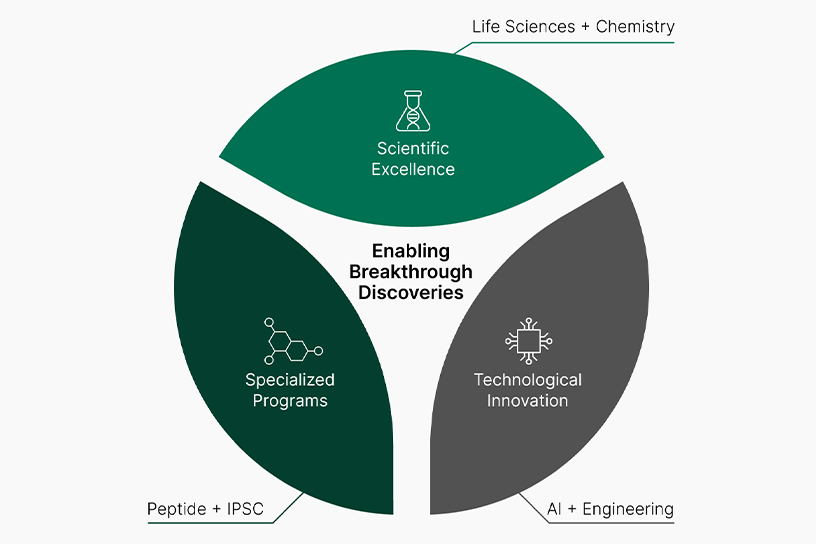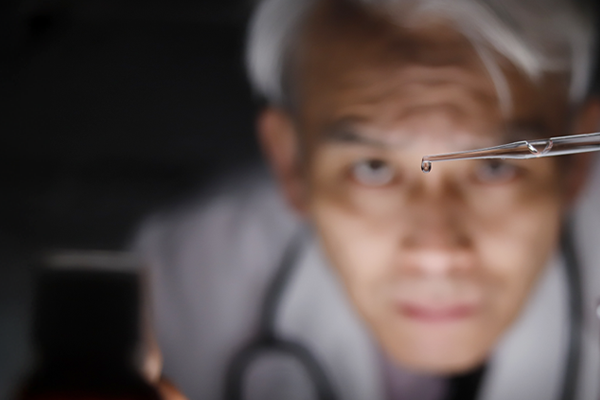Powered by decades of innovation and a global life sciences network dedicated to advancing discovery, Fujifilm Drug Discovery Solutions is a committed partner supporting the pharmaceutical industry with unique, customized solutions including advanced technology platforms, reagents and media, and CDMO services.
Working closely with R&D teams, we put Fujifilm’s full expertise behind every step of discovery.
We support ambitious R&D teams with unique drug discovery, modeling, and analysis technologies. Our platforms are designed to accelerate go/no-go decisions and reduce preclinical risk, helping R&D teams bring therapies to patients faster.
Built on our legacy in high-precision technologies and expertise across life sciences, chemistry, AI, and engineering. Our approach brings together real lab science and advanced data modeling, using methods like mRNA display for peptide discovery and AI tools for simulating new compounds. Fujifilm offers peptide discovery services, an advanced iPSC platform, and other critical services to enable breakthrough discoveries and deliver safe and effective treatments.

Our leadership in preclincial discovery is trusted by R&D teams worldwide.
An innovative iPSC Platform for drug discovery and disease modeling.
- Identify promising drug candidates
- Analyze potential safety and effectiveness
- Better understand disease response
- Optimize development of pharmaceutical compounds
A comprehensive solution for peptide discovery and optimization.
- Identify cyclic peptides tht bind strongly to targets
- Rapidly select, optimize and explore peptide candidates
- No royalty obligations for acquired peptides and no IP claims on discovered peptides
Advanced AI designed to identify and simulate structurally diverse compounds.
- Generate and analyze compounds for more effective, accessible and safer treatments.
- Explore drug mechanisms and gene targets.
- Predict potentially toxic chemical interactions for screening and regulatory compliance.
25+ global life science and R&D facilities within the Fujifilm group
A discovery library capable of generating 1013+ unique peptides
World leading iPSC-derived cell technology expertise
Drug2drugs® generative AI platform enables exploration of an immense chemical space
News Release: Fujifilm Launches Joint Research with National Cancer Center to Advance Innovative Cancer Treatments Technology
News Release: Fujifilm Validates Cancer Cell-Targeting Potential of Peptide Oligonucleotide Conjugates with Novel Cyclic Peptides
Fujifilm’s long-term investment in life sciences ensures your discovery programs are supported for the future.

